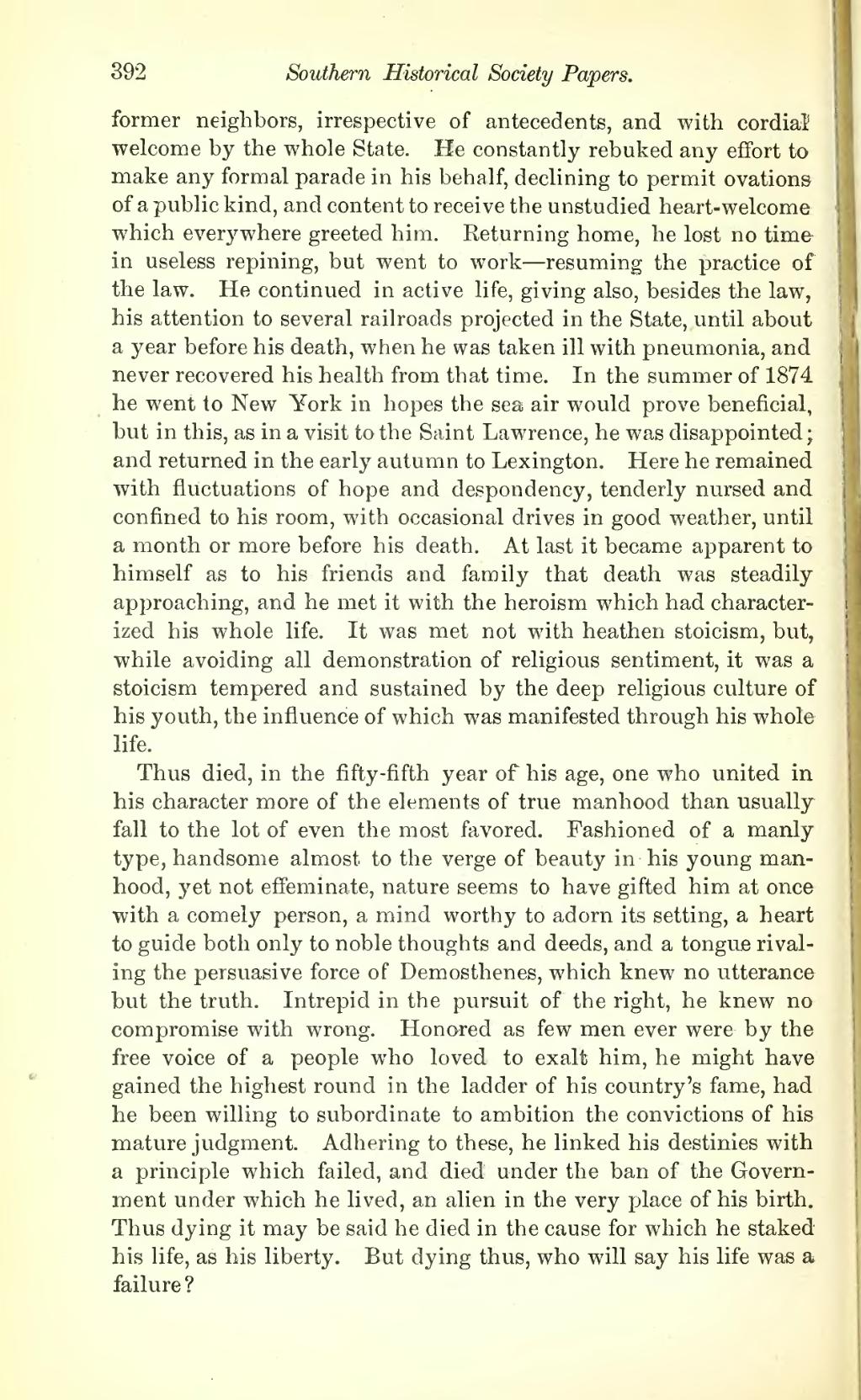former neighbors, irrespective of antecedents, and with cordial welcome by the whole State. He constantly rebuked any effort to make any formal parade in his behalf, declining to permit ovations of a public kind, and content to receive the unstudied heart-welcome which everywhere greeted him. Returning home, he lost no time in useless repining, but went to work—resuming the practice of the law. He continued in active life, giving also, besides the law, his attention to several railroads projected in the State, until about a year before his death, when he was taken ill with pneumonia, and never recovered his health from that time. In the summer of 1874 he went to New York in hopes the sea air would prove beneficial, but in this, as in a visit to the Saint Lawrence, he was disappointed; and returned in the early autumn to Lexington. Here he remained with fluctuations of hope and despondency, tenderly nursed and confined to his room, with occasional drives in good weather, until a month or more before his death. At last it became apparent to himself as to his friends and family that death was steadily approaching, and he met it with the heroism which had characterized his whole life. It was met not with heathen stoicism, but, while avoiding all demonstration of religious sentiment, it was a stoicism tempered and sustained by the deep religious culture of his youth, the influence of which was manifested through his whole life.
Thus died, in the fifty-fifth year of his age, one who united in his character more of the elements of true manhood than usually fall to the lot of even the most favored. Fashioned of a manly type, handsome almost to the verge of beauty in his young manhood, yet not effeminate, nature seems to have gifted him at once with a comely person, a mind worthy to adorn its setting, a heart to guide both only to noble thoughts and deeds, and a tongue rivaling the persuasive force of Demosthenes, which knew no utterance but the truth. Intrepid in the pursuit of the right, he knew no compromise with wrong. Honored as few men ever were by the free voice of a people who loved to exalt him, he might have gained the highest round in the ladder of his country's fame, had he been willing to subordinate to ambition the convictions of his mature judgment. Adhering to these, he linked his destinies with a principle which failed, and died under the ban of the Government under which he lived, an alien in the very place of his birth. Thus dying it may be said he died in the cause for which he staked his life, as his liberty. But dying thus, who will say his life was a failure?

